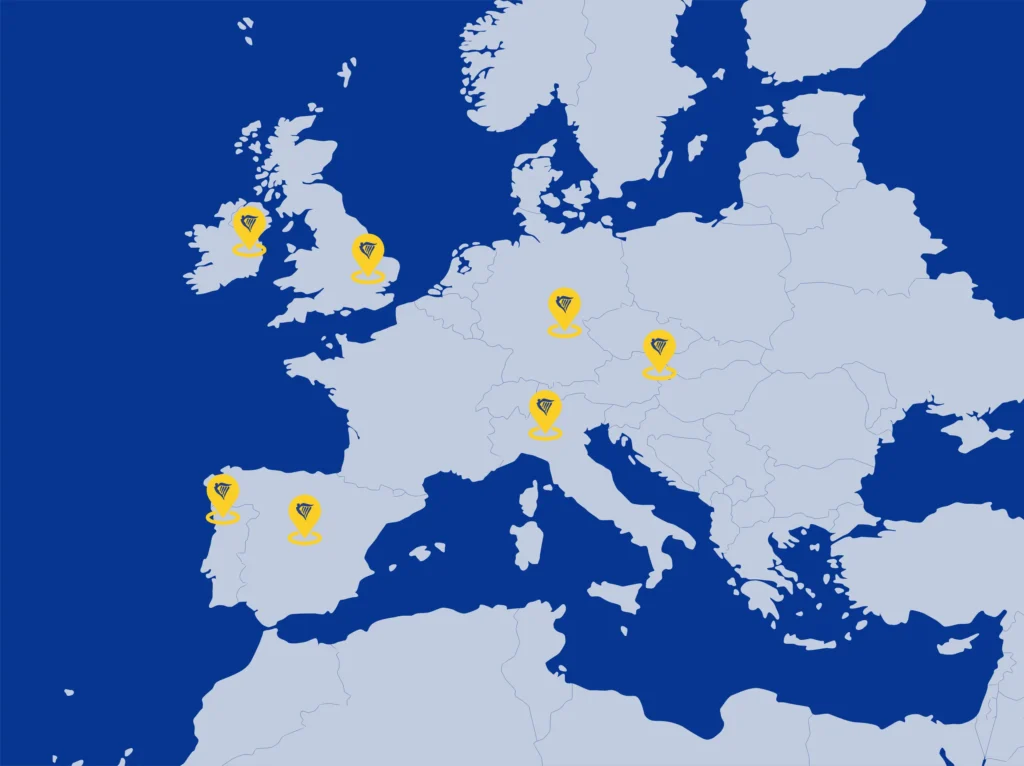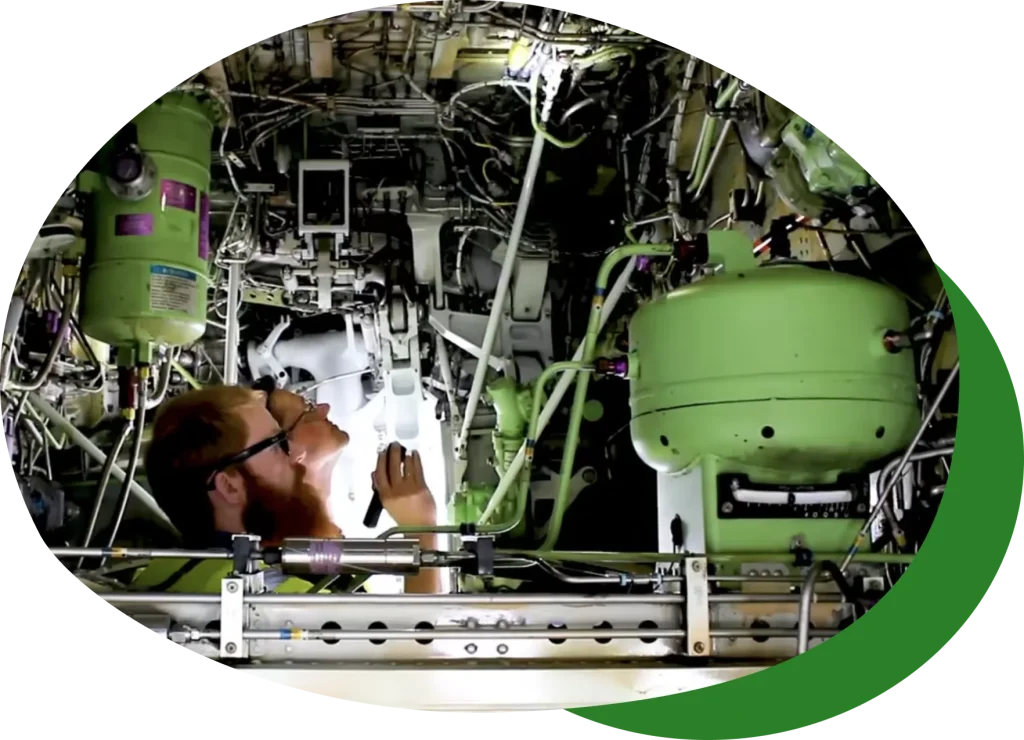
Line Maintenance
We pride ourselves on the skill and expertise of our team of engineers and their continued focus on the highest standards of safety, quality and reliability.
With a fleet of over 600 A320, B737-800 and B737-8200 aircraft and 4 Learjets our dedicated highly skilled Line Maintenance team is required during the day and night, to rectify any defects reported by flight deck or cabin crew.

Whilst we complete line maintenance across our entire base network, our largest Line Maintenance bases are:
Stansted, UK
Dublin, Ireland
Madrid, Spain
Milan Bergamo, Italy
Porto, Portugal
Nuremberg, Germany
Vienna, Austria
What is Line Maintenance?
Our Line Maintenance team carry out scheduled and unscheduled maintenance up to and including ‘A’ check intervals. As with all airlines most of our maintenance is carried out at night when our aircraft are not busy flying our passengers across Europe.
As a Line Maintenance Engineer at Ryanair, you’ll be responsible for completing a wide variety of tasks on our aircraft across Europe including:
- a wheel or brake unit change
- inspection of aircraft ensuring no damage has occured
- testing of electrical and avionics systems
- lubrication of landing gears
- replacing of filters on engines and/or hydraulic systems
What training is required as a Line Maintenance Engineer?
Training is fundamental to all of our engineers with a number of mandatory requirements before any Certificate of Release (CRS) can be signed.
This training includes Continuation Training, Human Factors Training, Fuel Tank Safety Training and Electrical Wiring Interconnection System (EWIS).
Suitable candidates will also be trained to Cat A and or B1/B2 level. The type licence will be achieved by attending a specific aircraft type training course.
Minimum requirements
In order to sign a Certificate of Release (CRS) for an aircraft, the engineer must have one of the following:
- an EASA Part 66 B1 or B2 Licence on the applicable aircraft type
- a Category A Licence which allows limited defect rectification based on the scope of their approval
Depending on which qualification an engineer has, a company approval is then given to the engineer which allows him/her to certify the work carried out based on the limitations imposed with their approval.

